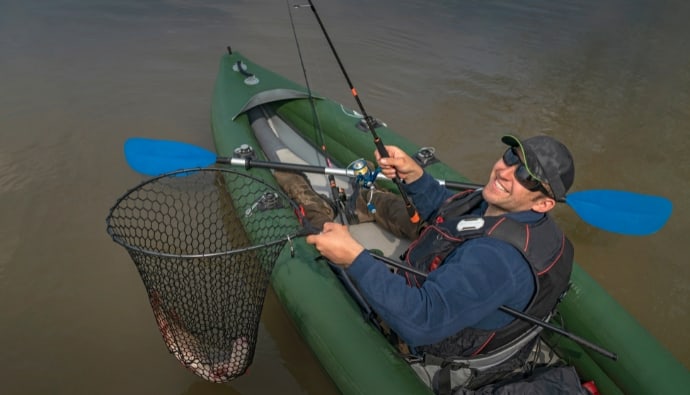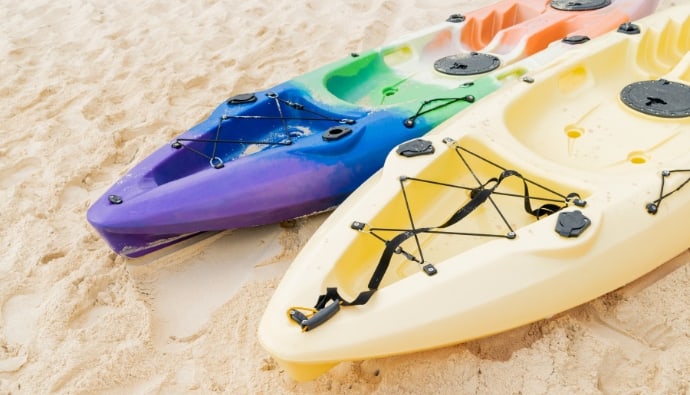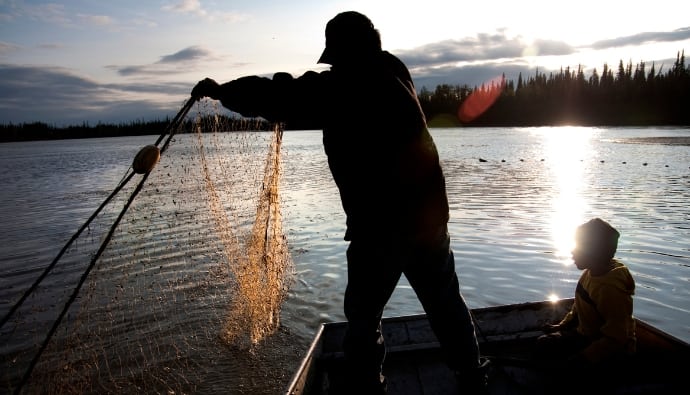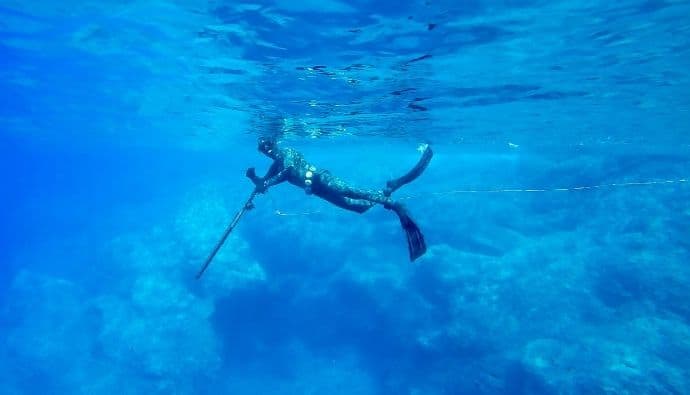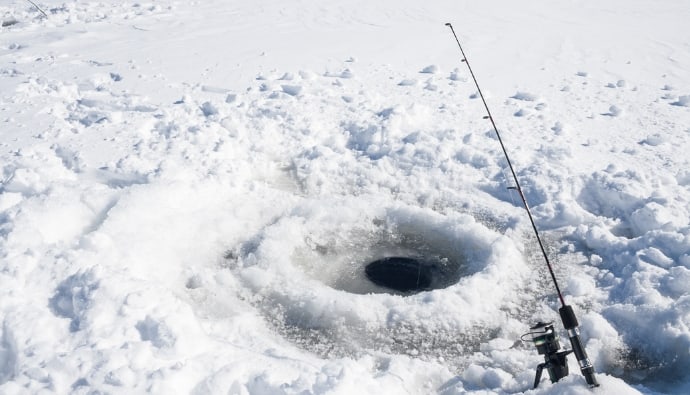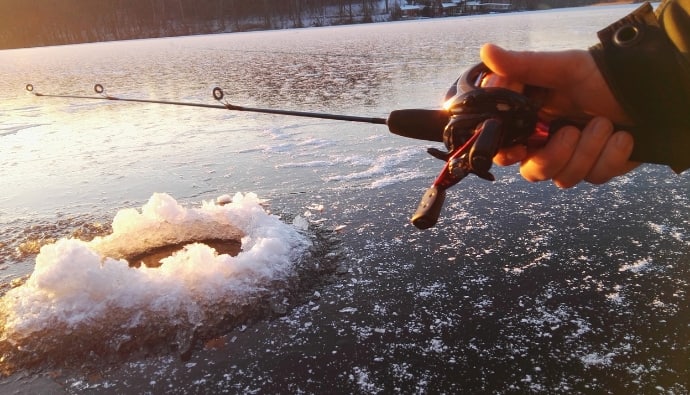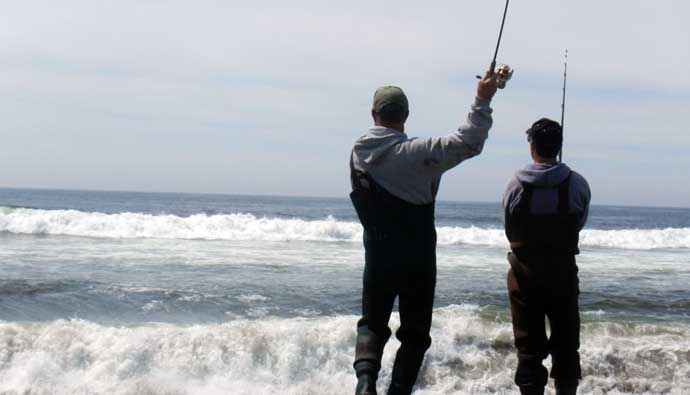To prevent seasickness while fishing, you can try taking seasickness medication (non-drowsy Dramamine, with doctor’s consent), staring at the horizon, getting fresh air on your face, drinking some ginger ale, or wearing a seasickness band. I remember the first time I got seasick; it was the worst feeling ever. What triggered it was a lack of sleep and large swells.
It’s essential to check the conditions before you go out. If there are large swells, you should plan your prevention accordingly. In this article, we’ll cover more options for you in detail to lessen your probability of getting seasick.
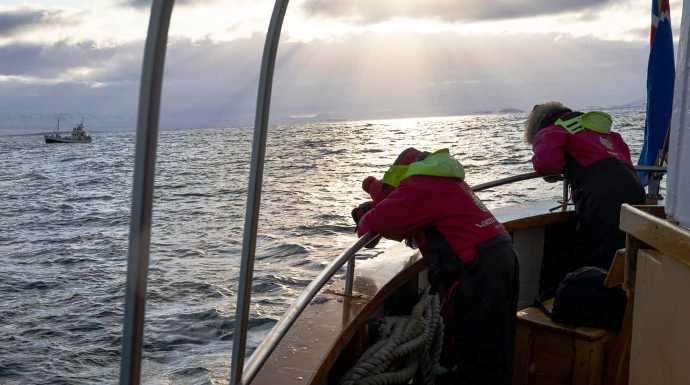
Listen to more fishing tips on the Cast & Spear Podcast
6 Remedies to Sea Sickness while Fishing
According to the Centers for Disease Control, almost 100% of us will experience seasickness, especially in rough waters. Here are seasickness remedies that are tried and tested by many fishermen who swear by them. Use these until you get your sea legs.
1. Always Eat Something
Going out on rough seas on an empty stomach can lead you to start feeling seasick on a deep-sea fishing trip. Try sticking with something bland like saltine crackers, so if it does come up, it’s not nasty tasting. Suck on hard candies made with ginger or peppermint, and make sure to drink plenty of water. And make sure not to drink alcohol.
2. Try Seasickness Medication
Some popular over-the-counter options are bonine which is a bit stronger than Dramamine. You can also pair that with the ear patch called scopolamine.
I like to take a less-drowsy Dramamine if I didn’t sleep well the night before. Be sure to consult a doctor before taking any over-the-counter medicines. However, it’s always important to get a good night’s sleep before you go on your fishing trip. Lack of sleep can lower your inner ear’s ability to adapt to changes and make you more seasick.
It’s better to take it the latest the night before. It’s less effective right before you get on the boat, and don’t bother if you’re already feeling sick.
DISCLAIMER: Always talk with your doctor before taking any new medications, and always follow the directions. Always consult your doctor for advice, diagnosis, or treatment.
Bonine
Bonine is a chewable flavored tablet taken once daily to prevent motion sickness-related symptoms like dizziness, nausea, and vomiting. This is best taken when planning a deep-sea fishing trip, especially for kids ages 12 and up, as it ensures all-day protection.
The flavor makes it easy to take and is an excellent over-the-counter pill for seasickness on a cruise or a fishing boat.
Dramamine
Dramamine is one of the trusted over-the-counter pills for fast relief to prevent seasickness and combat nausea and vomiting when boarding a moving craft. Along with the other precautionary measures, taking Dramamine before boarding will help you enjoy your deep-sea fishing trips more.
MQ Patch
The MQ Patch is an easy-to-use seasickness treatment that is safe for kids up to 4. It’s indicated 10 minutes before your boat leaves shore, and place the patch on your navel or the back of your ears to relieve any symptoms of motion sickness.
Pregnant women and those who have undergone surgery are not advised to use this over-the-counter patch and to consult a physician before using any OTC medical products.
3. Ginger Ale
If you start to not feel well on the boat, then try sipping some ginger ale to avoid motion sickness. Try chugging most of the can and forcing yourself to burp. That should reset your equilibrium. This is one of the best natural herbal remedies if you’re not into drugs.
4. Find the Right Spot On the Boat
You want to stay in the steadiest part of the boat. The back middle tends to be less rocky. Then focus on the horizon or something that doesn’t move. Looking at your phone or being indoors, like the galley or sleeping area on the boat, could cause you to feel sick in a hurry. Especially if you’re looking into a dark dive bag before spearfishing.
Try to use your knees to keep your head stable like a gimble.
5. If You Throw Up
Try to get some crackers down. Don’t go down and try to sleep it off. Get the fresh air on your face.
6. Try Acupressure Sea Bands
Another way most people avoid motion sickness is by putting pressure on it. Travel acupuncture needles, sea bands, or acupressure wristbands can be your best friend. These are also good for anxiety, headaches, and other maladies.
BONUS TIP
Seasickness tends to leave when the bite gets good. There’s a mental aspect to it, for sure.
Sea Sickness Symptoms
Seasickness has 2 common symptoms – vomiting and nausea. Aside from these, you might also experience pain, cold sweats, dry mouth, and headaches.
What causes sea sickness
When a vessel you’re in happens to ride an erratic motion on the water, your inner ear, where the human balance mechanism is, undergoes a conflict with what you’re seeing.
This conflict agitates the brain. When the brain senses a disconnect between your eyes, inner ears, and muscles resulting in a cascade of stress-related hormones to respond, and this causes nausea, vomiting, and vertigo- or what we know as seasickness.
Do you get used to seasickness?
National Ocean Service said that a person’s susceptibility to seasickness varies when boarding a vessel. If you’ve ever felt sick when traveling by car, plane, or an amusement park ride, you have a higher chance of being seasick.
It is also possible to get used to the ship’s motion through habituation, which makes you less susceptible to seasickness.
Can you die from seasickness?
While people always recover from seasickness, it is known that people can die from its most severe form, where dehydration occurs from excessive vomiting.
This dehydration can be fatal, resulting in death, but don’t worry; there is less to no chance this would happen as motion sickness has a survival rate of 100% and is easily treated and prevented.
How to Cure Motion Sickness Permanently
There has been no known cure for motion sickness per se, but it is said that habituation helps with the percentage of susceptibility, and there are many other ways to prevent it.
One way is to situate yourself in the right area of the ship. You want to be in the middle and near the waterline and when aboard, try to avoid reading, so make sure you read your fishing manuals before you set out.
Instead, focus your eyes on the horizon, stand up when feeling queasy, and separate yourself from those who have become nauseous. What you eat and drink are also significant factors in preventing seasickness.
It’s best to avoid greasy and acidic food and alcohol before you go out to fish. You can eat dry crackers to help with your stomach, get some needed rest, and remember to always stay hydrated before and during your fishing trip.
Frequently Asked Questions
The extent of the effects of being out in the sea varies for different people. To some, it usually lasts for only an hour or two, but to others, it can last up to several days, especially if they’ve been out in the sea for extended fishing trips.




 Facebook
Facebook YouTube
YouTube